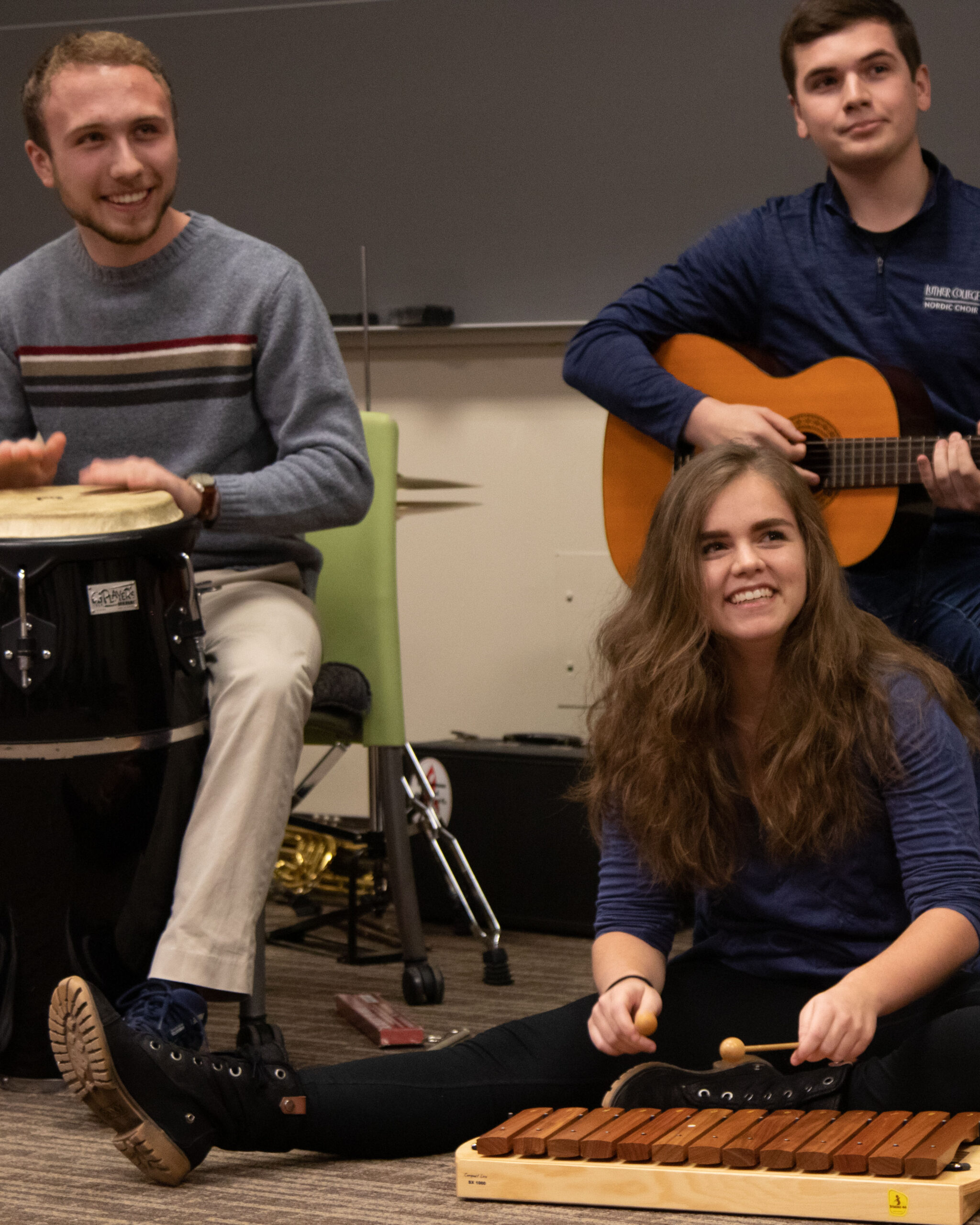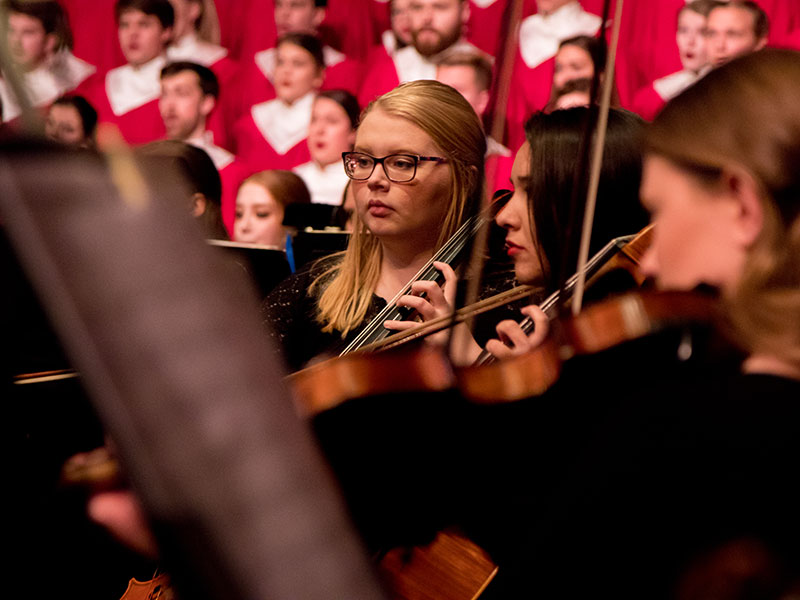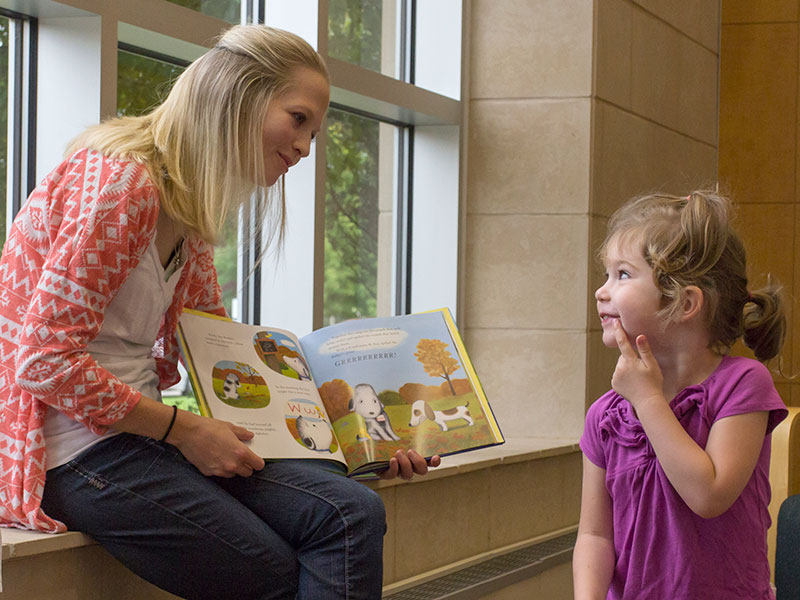Program Highlights
Multiple Practicum Experiences in K-12 Schools
Luther music education students experience teaching in schools as first-year students. Practicum experiences are tied to courses in five different semesters. In addition, there are several internships or opportunities to create your own adventure. Peer-teaching opportunities abound in classes and through Luther’s many ensembles.
Luther College Community Music School
Music education majors can teach lessons to community members. You could participate in outreach programs that include musical experiences for homeschooled or preschool children. You might lead an event like the Family Concert and Instrument Petting Zoo, or create and execute the Ukepalooza Play-Along.
Future Music Educators Association
Through the student organization Future Music Educators Association, you will have social and professional opportunities. Experts visit each semester to give guest lectures. You can also be a part of Luther traditions like the annual Orff picture book presentations, senior project research posters, and modern band performances.
Applied Learning
Music education major Charlotte Appel '25 gains valuable hands-on experiences developing music curricula for K–5 students and teaching them in local schools.
What You’ll Learn
Your academic courses will cover music theory, history, repertoire, and pedagogy. You’ll practice ear training and conducting. You’ll also receive lessons, perform a recital, participate in one of twelve ensembles, and complete a senior research project.
As a music education major, you’ll have opportunities to work with real students in real classrooms. “Try on” teaching in your first year, when you’ll spend several weeks observing teachers and experiencing the functions of the classroom. Later, you’ll put your skills to work teaching a unit in a monthlong practicum. Finally, a full semester of student teaching will combine your knowledge and experience.
Careers and Outcomes
Music education is one of the most popular paths for music majors. Luther graduates excel in their teaching careers at all levels: elementary school, middle school, high school, and college. Our music education majors achieve almost 100 percent placement after graduation. This is a testament to the program’s credibility and reputation. Luther alumni can teach in schools and universities across the United States and around the world.
Recent music education majors also often pursue further degrees in performance, conducting, composition, and more. Luther graduates attend prestigious music schools across the country such as the San Francisco Conservatory of Music, Northwestern University, Yale University, Cincinnati Conservatory, Eastman School of Music, Manhattan School of Music, and Juilliard School of Music.
Districts with Luther Music Education Graduates
Iowa
- Iowa City West High School
- Cedar Rapids Prairie High School
- West Des Moines Valley
- Linn-Mar Middle School
- Des Moines Public Schools
- Ankeny Centennial High School
- Waukee Community School District
Illinois
- Plainfield East High School
- Chicago Public Schools
- Glenbard South High School
Minnesota
- Wayzata Public Schools
- Northfield Public Schools
- Mahtomedi Public Schools
Wisconsin
- Parker High School, Jamesville
- Galena Public Schools
- Wauwatosa East High School
- Milwaukee
- Madison Country Day School
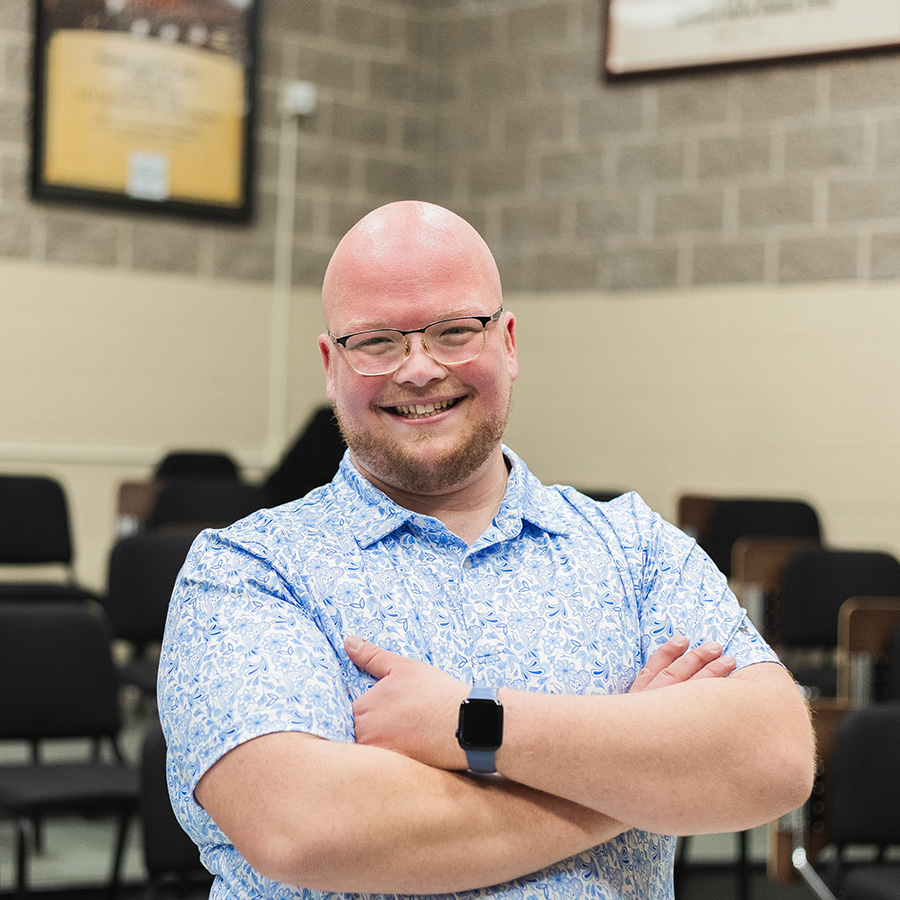



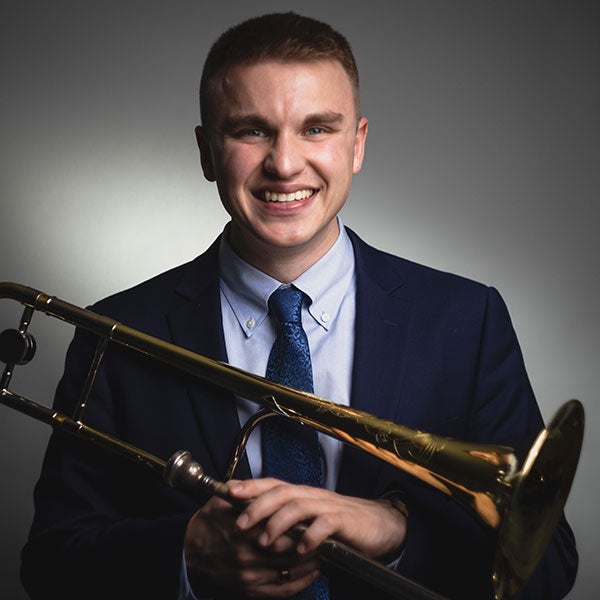
Future Music Educators Association (FMEA)
The goal of FMEA is to build a community where future music educators can:
- Grow in their understanding of music education through both professional development and various teaching opportunities
- Participate in programs, discussions, workshops, conferences, and performances
- Pursue leadership opportunities
- Network and collaborate with in-service music educators
- Connect with faculty and preservice music teachers in other colleges and universities
